Adriana Méndez dreams of going to college when she finishes high school, getting a good job to buy a house, getting married at 30 and having children. “I want to live independently, like my brother and sister,” she says enthusiastically.
For this 19-year-old student in the Special Education Program, summer job experiences have been found by her mother, Martha Ramos. She sought them out as she usually looks for so many other opportunities that her daughter deserves, that the law guarantees her on paper, but does not provide in practice.
During the 2021-2022 school year, the Department of Education (DE) referred only 197 students with disabilities to have an initial evaluation by their teachers, among 13,233 students who were “eligible for the transition process” to adult life.
Like Martha, Johana Pérez and Rosa I. González, waited more than a year for an adequate vocational and career evaluation, which would allow them to set clear objectives for their children’s transition into the workforce or college studies, thus to an independent life. They also knocked on a few doors to get job experiences for their daughters, Adriana and Julliana, and their son Carlos, respectively.
Meanwhile, the DE was dragging its feet in conducting the evaluations. At first, they attributed the delay to a shortage of certified guidance counselors, then questioned whether all students in the Special Education Program needed this type of evaluation to develop a good transition plan.
Act 263 of 2006 establishes that the first vocational evaluation for the transition of students to their high school, college, or independent life begins at 12 years old, but “the federal law [IDEA, of 1996] establishes that it begins at 16.” Meanwhile, one of the stipulations of 2002 in the Rosa Lydia Vélez class lawsuit, “establishes that the transition period starts at 14.”
“I have three different transition start dates,” claims Israel Medina, who represents parents of Special Education students and has exposed this problem before agency officials and administrative judges.
The disparity between these laws and the agreement, which can mislead Department of Education officials, hurts students in such a way that they never begin their transition on time. The important thing, Medina explained to the Center for Investigative Journalism (CPI, in Spanish), is that to avoid multiple interpretations, the DE should apply the law that provides the most benefits to the student.
The vocational and career evaluation service — which helps to identify and project the functioning of a person in the areas of vocation and employment — is supposed to be a right for Special Education students, according to Act 263. But “it is not fulfilled consistently,” says Sen. María de Lourdes Santiago, as well as mothers, fathers, and teachers of the population with functional diversity consulted by the CPI. The Senator has a son with functional diversity.
Of the 226 students who had an initial evaluation during the 2021-2022 school year, the majority (197) were evaluated by their Special Education teachers. Another 29 with moderate disabilities were assessed by Global Education Exchange Opportunities (GEEO) or Special Education and Rehabilitation Assessment Corp. (SERA). Both private companies are hired by the Department of Education for these evaluations.
Heysha Ortiz, Special Education teacher at the Medardo Carazo School in Trujillo Alto, believes “they’re killing the transition with a [vocational] interest test.” Before, “the hands on test was a little deeper, you saw more analysis by the counselors. Now it’s an online test: they sit the student at the computer, supervise that they do it, and the program itself gives you the results and the counselor’s analysis is minimal.”
As for the vocational interest test, Medina said “it’s necessary, but highly limited. When I have a student with level three autism, who doesn’t speak and doesn’t go to the bathroom on their own, that student is exposed to a vocational interest test. The instrument used by the Department of Education is a non-verbal evaluation, where 60 pictures are presented to the students so that in groups of three or four, the student indicates which one they prefer, but this is highly inefficient and ineffective to really measure the needs or the interest of the student.”
Adriana’s Transition is Stalled
“If the Department of Education doesn’t do what it has to do... students with intellectual functional diversity will not be given the opportunities,” Martha Ramos, mother of Adriana Méndez.
Adriana Méndez is a senior at the Heriberto Domenech Vocational High School in Isabela. Her first vocational and career assessment in 2022 was conducted by the director of the DE Transition Area, Janet López, and Ernesto Pérez, founder and president of the Special Education and Rehabilitation Assessment Corp.
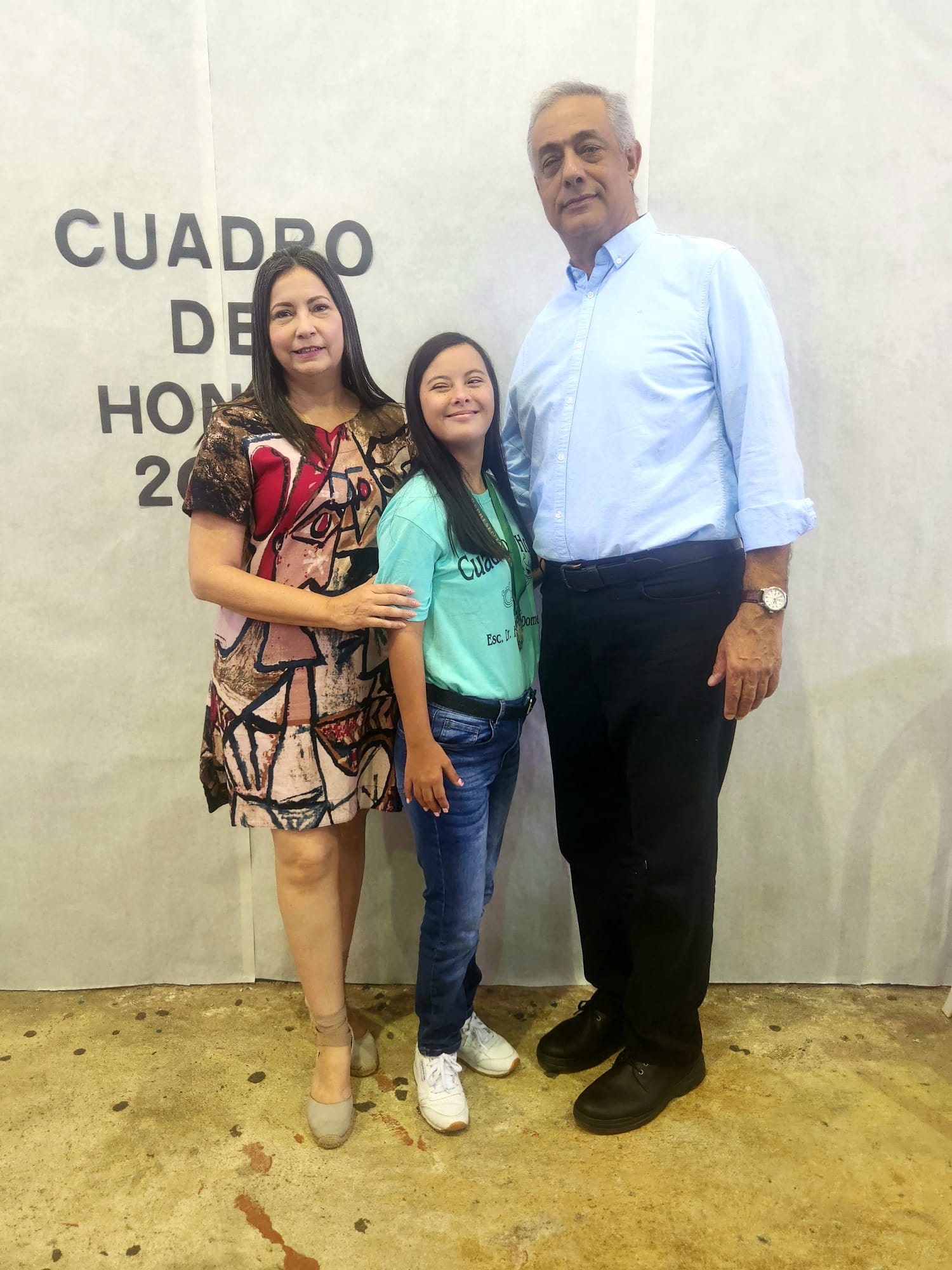
Courtesy photo
The second evaluation in February 2023 was carried out by Consejería en Salud Integral, whose professional counselor drew up a transition plan to integrate it into her Individualized Educational Plan. Although they should have met in March, it was not until April 21 that the Programming and Placement Committee (COMPU, in Spanish) — composed of Adriana’s teachers, her parents, and other personnel, such as the school counselor or social worker — met to discuss how to combine both plans.
“Everything was approved [at the meeting] and they have not yet given me the draft of the IEP [Individualized Educational Plan] that will be used in August [of the 2023-24 school year] to evaluate and approve it. They haven’t done anything at the school. Adriana graduates in 2024 because she will meet senior year requirements, she will get her diploma and she will graduate, but she will spend two additional years within the Department of Education,” her mother Martha Ramos explained in May. And it’s because of the agency’s lag to start its transition plan, the high school student will continue as a DE student.
Adriana is clear about how she wants her adult life to be. However, her mother laments that the Department of Education doesn’t do its part, “in terms of what they must cover within the transition process, especially with students with intellectual disabilities. They won’t have opportunities that way. They finish and they won’t be reached by the Vocational Rehabilitation,” program she warned, referring to the transition to employment through the Vocational Rehabilitation Administration (ARV, in Spanish). Her daughter gained work experience with the Municipality of Isabela during the summer and has participated in fashion shows.
Between 2018 and May 2023, Vocational Rehabilitation referred 2,896 Special Education students for employment. Both Martha and Johana said the agency tends to rate most students unfit for work when they have cognitive limitations. In addition, Milagros Álamo, Special Education teacher at the Medardo Carazo School, believes students “get lost in the transition process” with ARV.
“I have two 18-year-old students who finished with modified diplomas that allowed them to take some technical courses, get some certification, and those students still haven’t been summoned by Vocational Rehabilitation (ARV). Students in previous years, who are ready for sustained employment [with training and assistance], have never been called. Those students stayed home,” she lamented.
In the Dark about Carlos’ Modified Diploma
“How many parents have been told that because of their child’s condition it isn’t worth performing evaluations?” Rosa I. González, Carlos Cárdenas’ mother.
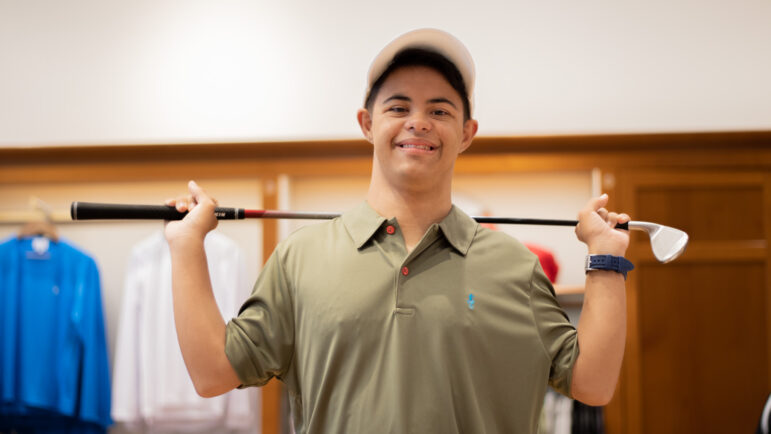
Photo by Joan C. Cruz Pérez | Centro de Periodismo Investigativo
Carlos Cárdenas is 25 years old; he likes modeling and photography. He is a Special Education student at a Guaynabo school through services contracted by the DE, an agency mechanism to guarantee educational services in a private school when they don’t have the appropriate location for the student’s needs in the public system. His transition to post-high school life was delayed when he took a year off from school after being bullied.
He went through three counselors referred by the DE for vocational and career evaluation, until he landed at Consejería en Salud Integral Inc., a company whose services have satisfied his mother, Rosa I. González. They never met the first provider that the Department referred them to — nor did they know the name of the company — and González rejected the second evaluation since she believed that the Global Education Exchange Opportunities contractor did not show the expertise to offer the services.
“When I started to request the vocational and career evaluation, they [the Department of Education] told me that they had to see if the student is qualified, when the law [Act 263] says every student enrolled in Special Education is entitled to the evaluation. That made me think about how many parents have been told that their children don’t qualify or that due to their child’s condition it is not worth doing evaluations,” González said.
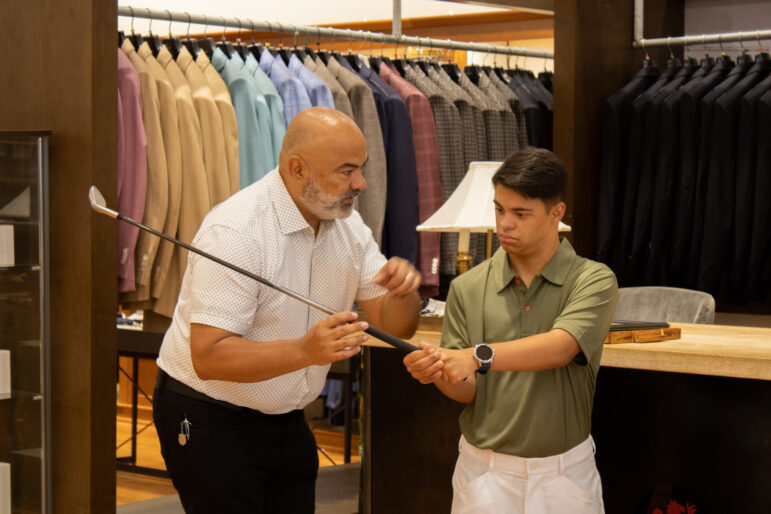
Photo by Joan C. Cruz Pérez | Centro de Periodismo Investigativo
Interim Secretary of Special Education, Jessica Díaz Vázquez, believes “the evaluations are determined according to the need [of the student]. Act 263 obliges the Department of Education to carry out this evaluation process, but when the law was approved it did not consider that we don’t even have 10 certified specialists in all of Puerto Rico.”
The professional counselor at Consejería en Salud Integral Inc. sees Carlos monthly to learn how his teachers are incorporating transition goals to employment or college into his Individualized Educational Plan (IEP). “Since she [the professional counselor] came in when the school year was almost over, changing goals and objectives and so on was going to be difficult for him and it was going to affect him. I think we’re on the right track,” Rosa explained.
Now the concern is what the DE has called the “modified diploma” because no one at the agency told González about the requirements of the special document that is granted to those who don’t meet the same graduation standards as students without disabilities.
“They must have hours or credits having done certain things, so what I’ve done is call companies” to allow him to do volunteer hours. While Vocational Rehabilitation (ARV) told her that her son is not “employable,” González got a couple of establishments to allow him to model clothes for promotional materials and is in talks with a private college institution to modify photography and editing courses to enroll Carlos, who has also participated in catwalks in activities coordinated by the Mi Gran Sueño Foundation.
Teacher Ortiz understands González’s concern because despite the agreement between the DE and the University of Puerto Rico (UPR) for students with modified diplomas to enroll in short courses at the university, “the parents began to go there and the institutions didn’t know that this existed, while the Department is announcing it with great fanfare.”
González stressed that “I’m pursuing all these experiences, besides those of the Foundation, so that Carlos can have hours of practice, get through the transition process, and get his modified diploma. The university thing is so that he can fulfill his dream of studying at a university, even if it’s a technical degree, or more, if possible. He sees our picture [of his older siblings and parents] with the [graduation] cap and he says, ‘I want, I want college’.”
From the 2019-20 to 2021-22 school year, the DE graduated 900 students from the Special Education Program with modified diplomas. Meanwhile, Vocational Rehabilitation referred 5,271 participants to vocational training or technical universities between 2018 and 2022.
UPR President Luis A. Ferrao Delgado failed to comply with the Transparency Act that requires him to produce public information. Since April 10, the CPI has requested data on how many students have enrolled in courses within the Division of Continuing Education and Professional Studies since the agreement was signed with Education in September 2021, but the central administration did not provide it.
The Challenge of Finding an Employer for Julliana
“They are the most loyal people that employers can have; they should give these young people more opportunities and society will see real inclusion,” Johana Pérez, Julliana Ortiz’s mother.
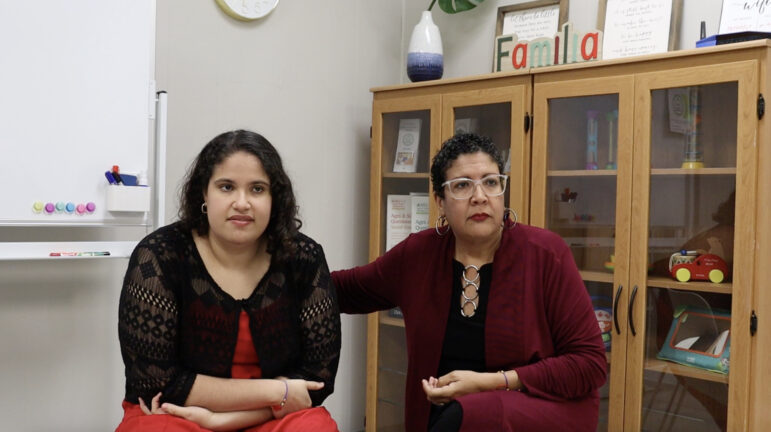
Photo by Joan C. Cruz Pérez | Centro de Periodismo Investigativo
Julliana Ortiz is 25 years old and is still with Vocational Rehabilitation in what is known as Route 3 of the transition process, as established in the DE’s Guide for the Transition to College Life. Attorney Medina believes the document “has many flaws,” such as authorizing Special Education teachers to carry out the students’ initial evaluation without proper preparation, when Act 263 requires certified counselors to do that. Julliana’s transition plan to get a job and achieve independent living began five years ago with the ARV, after the Education Department graduated her without offering her a vocational and career evaluation.
“We are moving toward getting her to work, that will be the greatest achievement. Now we’re looking for a match with an employer who will give her the opportunity,” her mother, Johana Pérez, told the CPI. Julliana had work experiences in a jewelry store, a pharmacy, a supermarket and in a tomato packing plant, which she says was her favorite experience.
In Puerto Rico, 21% of the population has a disability, according to estimates from the 2017-2021 Census Community Survey, and only 6.7% of that group is in the labor force.
Julliana’s first evaluation was with Global Education Exchange Opportunities, and the second, through the Colegio de Educación Especial y Rehabilitación Integral (CODERI). “When GEEO evaluated her, they didn’t interview her, they didn’t do that analysis, they didn’t look at her history, but instead they submitted her to standardized tests at my house,” contrary to the Consejería en Salud Integral, which in addition to visiting her at home, they took her to laboratories for additional tests and “she went to see her [the counselor] in one of the work experiences she had with CODERI. It was very different; they have covered her entire background,” Johana explained.
“Parents should know that if you’re not satisfied with the evaluations, you don’t have to accept them. When you see an evaluation, you must see something like an x-ray of your child and I couldn’t see that [in the evaluation done by GEEO]. They evaluated her in a single day,” Pérez said.
The companies contracted by the DE through proposal requirements must submit reports when presenting their invoices and must have the agency’s approval to proceed with the payment.
Through CODERI’s Sustained Employment Project, Johana hopes to find an employer that will employ Julliana, but she stressed that if “a school can’t steer its students into a real work environment, it’s going to be tougher for [the student] to navigate Vocational [Administration] Rehabilitation’s path.”
She also urged employers to “not be afraid to recruit this type of person because they believe that they’re cognitively limited. They’re the most loyal people they can have. If they give these young people more opportunities, society will see real inclusion, it will get used to seeing our young people in work areas.”
Evaluations in the Hands of Three Contractors
Since 2012, Global Education Exchange Opportunities (GEEO) — incorporated by the former Secretary of Education under Gov. Luis Fortuño’s tenure, Odette Piñeiro — has contracts with the DE to provide teacher training. At the end of 2020, the corporation landed its first contract with Education for $500,000 to provide “consulting services... to learn about those schools that don’t have a vocational counselor or vocational and career evaluator, the registered cases, and those that require development of intervention plans and vocational consultation with the evaluation’s results.”
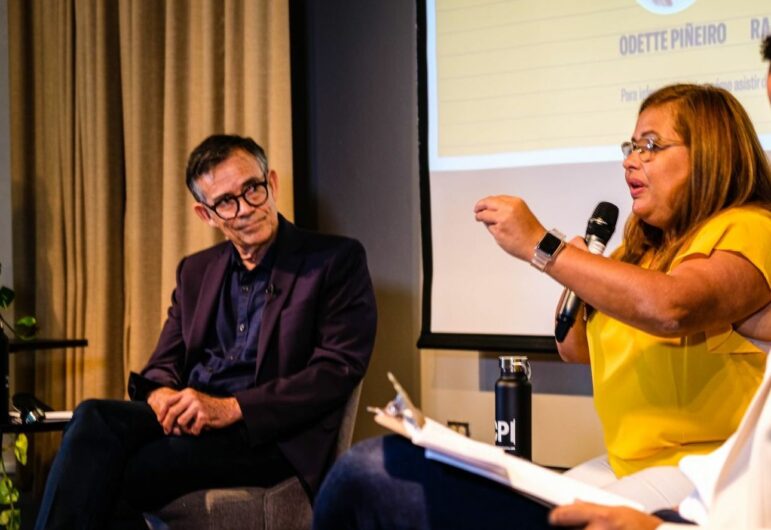
Photo by Ricardo Rodríguez | Centro de Periodismo Investigativo
In December 2022, the ARV awarded a $795,000 contract to GEEO to conduct six “service fairs related to pre-employment transition services activities,” including career exploration counseling, post-high school education, work-based learning experiences, and training for social skills and independent living.
The director of the Special Education Project at GEEO, María M. Ortiz, said if a parent is not satisfied with their child’s vocational and career evaluation, the concerns are incorporated into the minutes of the Programming and Location Committee’s (COMPU, in Spanish) meetings.
“We have been to Compu, where we’ve been asked to have the licensed vocational assessment specialist come in and discuss the results with the parents. At GEEO our work goes as far as our participation in the Compu and being resources to explain [to parents and teachers],” she said. In these cases, once the specialist explains their results, they can recommend another test “and see if they compare [the results of the recommended test] with those already obtained,” she added.
Consejería de Salud Integral Inc. (CSI), incorporated in 2018 by Mary Nelly Díaz Gascot, signed its first contract with the DE in 2022 for $170,000. The evaluator and vocational counselor determined at the time that the schools were not connecting what happened in the evaluation with the transition. With this in mind, and whenever she can, she develops “an IEP [Individualized Education Plan] for that student that responds to the findings of that evaluation.”
Special Education and Rehabilitation Assessment Corp. (SERA) — owned by former Secretary of Special Education of the DE during Gov. Aníbal Acevedo Vilá’s term, Ernesto Pérez Cartagena — got contracts with the agency starting in 2014. The last contract he signed in 2020 for $21,000 was to train 14 Special Education teachers on the transition process with an emphasis on student assessment and planning for secondary transition services.
Heysha Ortiz was one of the teachers SERA trained to carry out vocational evaluations on students, and she expressed satisfaction with what she had learned, but regretted that her workload didn’t allow her enough time to evaluate all her students. “I have an assigned enrollment of 29 students and administering all those questionnaires and having everyone have a good post-high school transition plan, if I do that, I can’t provide Spanish and math skills,” she explained.
Meanwhile, Sen. Santiago pointed out that “there are people both in the [Education] Department and in the companies that provide services who think that when it comes to children with severe diagnoses, it isn’t worth seeking the level of independence that should lead them to vocational guidance or preparation. I think that’s where the disdain with which the matter of vocational evaluations has been treated is.”


